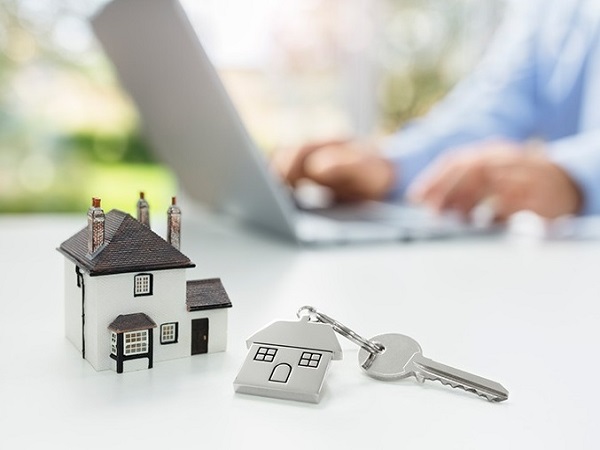Buying a house can be a stressful experience. After all, this is one of the biggest investments you’ll ever make. There’s plenty of reason to be nervous.
But you can’t let nervousness rule the day. By being deliberate and doing your due diligence, you will make the best home purchase possible.
Need help? Then read on. Here is what to know before buying a house.
1. You’ll Want to Be Pre-approved
Odds are, you’re going to be financing your house with a mortgage. If so, you’re advised to get pre-approved for a mortgage first. Buyers are taken much more seriously if they’ve already been pre-approved.
This is because they have proof that they can, in fact, afford the house in question. If they don’t have pre-approval, they don’t have proof. It’s really that simple.
Call a few lenders and ask about getting pre-approved. You’ll have to fill out some paperwork and enter some personal information. But once you have, the lender will tell you how much you’re reasonably willing to lend out.
2. You Should Know Your Limits
Before you start checking out homes, it’s important that you have a grasp on your limits, and namely your income limits. Remember: your mortgage will need to be paid monthly for the next 15 to 30 years. You don’t want to get saddled with a figure that you can’t pay.
Generally speaking, it’s wise to keep your purchase price to no more than 3 1/2 times your yearly income. So, if you and your spouse make $100,000 collectively, you won’t want to pay any more than $350,000.
Another rule of thumb is to keep your monthly housing costs at no more than 28% of your pre-tax monthly income. Total debts (including your housing costs) shouldn’t exceed 36%.
So, do the math and keep away from any homes that don’t fit within these figures. If you end up buying a house that exceeds these figures, you risk becoming house poor.
3. A House is Not Always All That It Seems
When checking out a house, you’re typically assessing its superficial aspects. For instance, you might enjoy its hardwood floors or its granite countertops. What you’re probably missing out on is its electrical system, plumbing system, and a variety of other things that help it to function.
What you must realize, however, is that you can’t take these things for granted. See, a house is not always all that it seems. While it might appear to be functional on the surface, it could have underlying problems.
For this reason, before buying a home, you need to make sure that it’s not due for any sizeable repairs (unless, of course, you’re interested in buying a fixer-upper). A crumbling foundation or damaged plumbing pipes could cost tens of thousands of dollars to repair. These repair costs could drive up your total costs substantially.
Schedule an inspection prior to the purchase. A professional inspector will be able to inform you of whether you’re getting a good deal or not.
4. Better Locations Equal Higher Costs
If you haven’t realized yet, the better a home’s location, the more it will ultimately cost. As such, there’s some monetary benefit to buying a house that’s not in the most coveted areas.
For instance, you might want to buy a house in Manhattan, but the truth of the matter is that Staten Island is cheaper. Why? Because Manhattan is a much more popular area.
Just keep this in mind when you’re searching. You might be able to find a 4-bedroom house in the suburbs at the same price at which you would buy a condo in the city.
5. You Can Compromise
A home’s listing price is not set in stone, at least not in most cases. You can haggle with the seller and can even ask for certain portions of the home to be fixed prior to going through with the deal. In other words, there is room for compromise.
So, if you come across a fixer-upper, or if you come across a home that’s on the borderline of your budget, you shouldn’t write it off immediately. Speak with the seller and see what kind of arrangement you can come up with. If there aren’t any other interested buyers, you have a decent chance of things going in your favor.
6. Your Mortgage Cost Isn’t the Only One You Need to Worry About
When you think of the price of a home, you might just think of the mortgage cost alone. However, this isn’t the only cost you have to pay. In addition to miscellaneous closing costs, you also have to pay property tax, home insurance, and maybe even private mortgage insurance.
The latter three are generally rolled into your mortgage but can bump its total up substantially. Property tax, in particular, can be as much as $500 to $1,000 a month and sometimes even more (it’s dependent on the area in which you live).
The point is, when searching for homes, you need to factor in all of the costs. Don’t be tricked by the listing price alone.
7. A Real Estate Agent Can Make a Huge Difference
Yes, using a real estate agent will cost you a bit of money. However, in the end, it’s usually worth it, especially if you’ve never been through the home-buying process before.
An agent will not only help you to locate potential homes but he or she will also assist in handling the technical aspects of buying the home. This will make the experience much less stressful for you, allowing you to focus on the quality of the homes alone.
No, you don’t need to use a real estate agent. But, if you’re a first-time buyer, it would be a good idea.
And That’s What to Know Before Buying a House
And there it is, that’s what to know before buying a house. Take this advice to heart and you’re sure to end up with a functional home at a fair price.
In need of other such information? Our website is the place to be. Check out some of our other articles right now!



